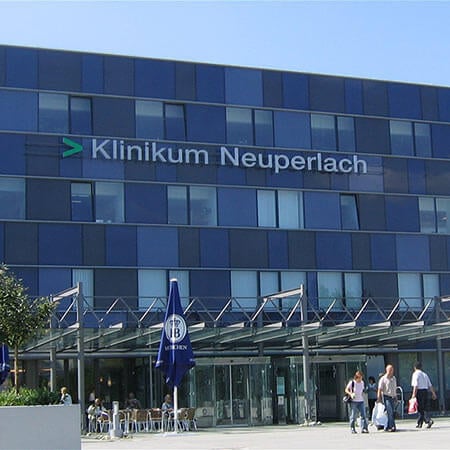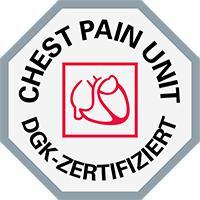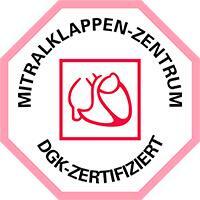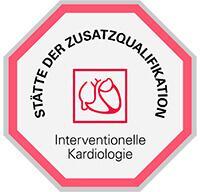The medical term "hypertension" in medicine is mostly used to indicate heart diseases. However, high blood pressure can also occur in the lung tissues. This is basically what pulmonary arterial hypertension is. It is less common but has a more significant threat to life. Why does it occur and what are the complaints? What options of treatment and diagnosis are offered by modern medicine and is surgery necessary? We will try to answer these questions below.
Content
- What is pulmonary arterial hypertension?
- What are the symptoms of pulmonary arterial hypertension?
- Possible complications of pulmonary hypertension
- Treatment principles in Germany
- Drug therapy for pulmonary hypertension
- Surgical treatment
- Treatment of PH in the midst of the pandemic
- Treatment of pulmonary hypertension in German hospitals
- The cost of treatment in Germany
- How to start treatment in Germany?
What is pulmonary arterial hypertension?
In a healthy person, the pulmonary arterial pressure is much lower than in the aorta and the vessels coming out of it. But when pulmonary arterial hypertension develops, the vessels narrow, creating difficulties for blood flow to the lungs, and thereby increasing the pressure in the pulmonary vessels. When blood exits the right ventricle of the heart, it encounters resistance, causing the right ventricle to work harder to actually get blood to the lungs, eventually leading to myocardial muscle weakness and right ventricular failure. In its early stages, the medical condition does not cause any symptoms, but over time, the cardiac function becomes impaired, posing the risk of developing various heart diseases, heart failure, and even death.
The disease is more common in women, especially young women, than in men.
What are the symptoms of pulmonary arterial hypertension?
The symptoms of the disease are very nonspecific, so it is very difficult to identify pulmonary arterial hypertension without a professional diagnosis. Moreover, in the early stages, pulmonary arterial hypertension is usually not accompanied by any signs, so there is no obvious need to seek medical attention.
The first characteristic sign of pulmonary hypertension is dyspnea on physical load. At first, it appears only during significant loads, and in later stages – during light physical activities (walking, squatting) or even at rest. Patients also complain of rapid fatigue, irregular heartbeat, and fainting for a few seconds during heavy physical activity (then patients usually get up as if nothing had happened). Sometimes there is chest pain or abdominal discomfort and headaches.
When the disease begins to disrupt the activity of the right ventricle of the heart, there are symptoms of heart failure, including swelling of the legs and abdomen, lack of oxygen, causing a bluish color of the skin. These symptoms are already a signal that requires immediate medical attention.
Possible complications of pulmonary hypertension
Impaired blood flow in the lungs, which is often present in patients with pulmonary arterial hypertension, can lead to the development of dangerous complications, including:
- Heart failure. When the conditions force the right ventricle to increase the functional load to get blood into the lungs, the heart begins to compensate for the narrowing of the pulmonary arteries by thickening the walls of the myocardium and expanding the ventricle to increase the volume of blood it can store. In doing so, the right ventricle collapses due to constant hyperactivity, which ultimately leads to heart failure.
- Thrombosis. When pressure increases due to pulmonary blood vessel narrowing, there is an increased risk of blood clots, which can lead to clogging of the vessels suffering from the narrowing.
- Arrhythmia. While pulmonary arterial hypertension progresses and heart activity increases, palpitations, dizziness, and fainting are observed.
- Bleeding. High blood pressure can lead to bleeding in the lungs with a bloody cough.
Treatment principles in Germany
General guidelines are relevant for all patients with pulmonary arterial hypertension without exception, which, when followed, reduce the risk of possible worsening of the course of the disease due to certain circumstances and external factors. In everyday life, patients with pulmonary arterial hypertension should avoid potentially dangerous activities that may provoke the occurrence of dyspnea, syncope, and chest pain; physical activity after meals and unfavorable temperature conditions are prohibited. At the same time, patients with pulmonary arterial hypertension should maintain adequate skeletal musculature by performing daily dosed physical activities that do not cause the above symptoms, which helps to reduce clinical symptoms.
Hypoxia exacerbates vasoconstriction in pulmonary arterial hypertension, so additional oxygen therapy should be discussed for patients during air transport flights. Infectious disease prophylaxis is of paramount importance for patients with pulmonary arterial hypertension. Patients should be advised to receive flu and pneumococcal vaccinations because pneumonia aggravates the course of the disease and becomes the cause of death in 7% of patients with pulmonary arterial hypertension.
All patients with pulmonary arterial hypertension of reproductive age should be recommended appropriate means of contraception. The dependence of hormonal birth control and the aggravation of pulmonary arterial hypertension has not been proved in a significant number of studies. Such patients are recommended for estrogen-free contraceptives and barrier methods of contraception. Pulmonary hypertension patients are highly sensitive to the lowering of blood hemoglobin levels, so even mild anemia requires prompt and effective medical care.
Methods of treatment of elevated pressure in the lungs depend on what has caused the disease and how aggressive the disease is. The disease itself can be considered chronic, but drug therapy helps to relieve symptoms. Medication usually requires extensive and long-term medical follow-up to make sure that treatment is beneficial and prevents fatal complications.
Drug therapy for pulmonary hypertension
Despite the rarity of the condition, modern medicine offers several drugs for its management. With that said, patients can be indicated therapy with:
- PDE5 inhibitors to lower the pulmonary pressure.
- ERAs. Such drugs block the receptors that cause vessels to dilate. These drugs can cause liver complications, so they require regular medical monitoring and control with blood tests on liver function.
In parallel with the targeted drug therapy, general therapy is conducted, which consist of such medical manipulations as:
- Therapy with calcium channel blockers. These drugs block the calcium absorption, helping to improve tone of heart muscles and relax them.
- Drug therapy for heart rhythm disorders. Prescribed to control heart rate and increase cardiac activity.
- Therapy with diuretics. Diuretics help remove excess fluid from the body, helping to lower the pressure in the circulatory system.
- Therapy with anticoagulants. These drugs are used as the main treatment for pulmonary hypertension, since this phenomenon is associated with an increased risk of blood clots as a result of heart failure.
- Oxygen therapy. In addition to medication, some patients diagnosed with pulmonary hypertension are recommended to receive supplemental oxygen therapy. Oxygen therapy can be carried out according to different techniques with the use of oxygen masks and balloons. In the case of exacerbation of pulmonary hypertension, patients may require prolonged oxygen therapy.
Surgical treatment
When therapy with medication does not bring the desired result, and after several drugs and their combinations have been tried, surgery is required for such patients to prevent serious and life-threatening complications. Several types of surgery are currently practiced to treat pulmonary arterial hypertension:
- Atrial septostomy. In this surgery, an incision is made that relieves the right side of the heart. The operation can potentially be accompanied by various aggravations, including heart rhythm abnormalities, which can be considered as a step toward a lung transplant.
- Lung transplant. A healthy lung transplant is a last resort technique conducted in particularly severe conditions. The transplant is prescribed in the late stages mainly of the idiopathic pathology. After such surgery, long-term medication to prevent rejection of the implant (immunosuppressants) is needed for life, and people who have undergone such a procedure require constant medical monitoring.
Treatment of PH in the midst of the pandemic
In the present epidemiological situation, when the world is faced with a coronavirus pandemic, the problems of managing high-risk groups arise, and among such groups patients with cardiovascular conditions occupy a special place. People with cardiovascular pathology are in great danger especially when there is a significant course of progression present; the situation is related to chances for unfavorable reactions and creates additional difficulties in the establishment of tactics for treatment.
Pulmonary arterial hypertension is a dangerous cardiovascular pathology, which has an extremely poor prognosis if untreated. The world’s healthcare community faces many unique challenges in providing medical care during the pandemic for various types of the disease. Modern techniques of treatment of those having a pathology with a theoretically aggressive course are established on two key aspects: the implementation of effective specific medication and early use of rationally combined regimen. Thus, in pulmonary arterial hypertension patients, who developed clinical deterioration during the first year of monitoring, prognosis in the subsequent year significantly worsened compared to those without clinical deterioration.
The stable course of pulmonary arterial hypertension can be considered the exception rather than the rule. Destabilizing factors include pregnancy, need for surgery, prescription of concomitant medications, or temporary discontinuation of specific treatment. Any infectious process can provoke clinical deterioration in this category of patients. Therefore, in a pandemic, exposure to an infection and a stressor form a very dangerous duo. In these circumstances, the use of modern, highly effective drugs is a guarantee that a virus will not have a deleterious effect on the course of events.
Intensive treatment aimed at the reliable achievement of lower risk for patients with the disease that can improve prognosis and cutback the probability of unwanted outcomes, which is emphasized in the prevailing medical recommendations. It is necessary to remember that COVID-19 pandemic has changed the generally accepted standards of medical care for some groups of patients with pulmonary hypertension who receive specific medication therapy.
Nowadays, it is extremely important to take an individual approach to the treatment of patients with pulmonary hypertension, when discussing the issue of planned hospitalization. All patients should be assessed, on the one hand, for the risk of possible COVID-19 infection on admission to the hospital or outpatient visit to the outpatient clinic. On the other hand, in patients with a high probability of developing pulmonary hypertension, timely initiation of specific treatment to reduce the risk of disease progression is an important factor for completing the examination and a thorough risk assessment.
For people with deterioration (unstable patients), diagnostic measures must be repeated to timely detect the potential aggravation of the root disease, to detect ventricular decompensation, and to suspect COVID-19. Fever in such patients should raise the suspicion of COVID. If respiratory functioning worsens, emergency hospitalization, and laboratory testing should be considered.
Treatment of pulmonary hypertension in German hospitals
Pulmonary arterial hypertension requires comprehensive and highly professional treatment. At German hospitals, it is carried out by a team that includes qualified pulmonologists, cardiologists, and surgeons. The doctors achieve a steady improvement in the patient's condition and eliminate the risk of severe consequences of the disease. The high level of medical services is confirmed by those who underwent pulmonary hypertension treatment in Germany: reviews speak of the effective elimination of its causes and symptoms, stabilization of a condition, and return of the patients to their normal rhythm of life. Particular attention is paid to the diagnostic process, which is conducted on modern equipment, allowing the exact detection of pathology, and subsequently helps to determine the most effective treatment plan.
It is worth noting that German hospitals offer comfortable conditions for foreign patients.
The best hospitals for treatment in Germany are:
- University Hospital of Ludwig Maximilian University of Munich.
- University Hospital Frankfurt am Main.
- Catholic Clinic Koblenz-Montabaur.
- Academic Hospital Brothers of Mercy Munich.
- Bundeswehr Academic Hospital Berlin.
For more information about the hospitals to undergo treatment in Germany, please visit the Booking Health website.
The cost of treatment in Germany
What patients should know is that even though the cost of treatment in Germany varies for different cases and diagnoses, the cost of treatment in Germany is calculated based on the unified pricing system, which excludes any arbitrary manipulations.
The list of presented prices for medical services is not exhaustive and includes only the main services that are most demanded for patients with pulmonary hypertension. The prices indicated in the list are preliminary.
- The cost of treatment with conservative methods and holter monitoring starts at 1,463 EUR.
- The prices for diagnosis start at 465 EUR.
- The prices for right heart catheterization for pulmonary hypertension diagnosis start at 2,287 EUR.
- The prices for pulmonary rehabilitation start at 708 EUR.
You can always contact Booking Health for the preliminary establishment of the cost of treatment in Germany in the specific clinical case.
How to start treatment in Germany?
Booking Health can easily initiate your treatment in Germany, since the company cooperates with the leading German hospitals directly, which influences the velocity of the organizational matters.
Besides, Booking Health is ready to consult you regarding any aspect of treatment abroad.
Therefore, feel free to contact Booking Health via the request form on the Booking Health website.
Authors: Dr. Nadezhda Ivanisova, Dr. Sergey Pashchenko
















